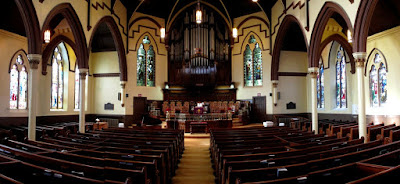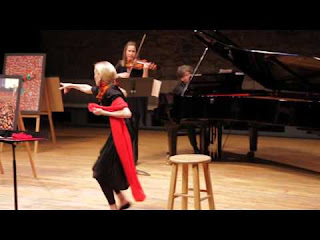Last night, August 21, 2016 the 16th Tuckamore Festival
concluded with a splendid finale featuring this year's crop of young
talent. The Festival
regularly features world-class quartets like the Shanghai Quartet, which (I
believe it was) the New York Times described in glowing terms like
"exquisite". And so St.
John'a audiences go into the concert hall brimming with expectations of
excellence and are not disappointed.
Can you imagine how intimidating that must be for those Young Artists
who take the stage for largely the same audience in the same week? Talk about a tough act to follow from
the 19th: the Shanghai Quartet, Duo Concertante with Vernon Regehr in a
Schubert Extravaganza!.
The two weeks leading up to the finale must be something of
a pressure-cooker for the young musicians participating in the masterclasses
and mentorship program. Listening
to the six performances last night, you would never guess that these quartets
and trios were newly minted ensembles.
The timing, the cueing, the balance of instruments was there. My hat also goes off to the artistic
directors, Nancy Dahn and Timothy Steeves for their crafting of these
ensembles. It takes insight in how
to match skill levels, musicianship and then the all-important
programming. The diverse
selections of music by Dvorak, Mendelssohn, Brahms, and Beethoven made for a
pleasurable evening of musical experience that ended on a highpoint with a
flourish of Fauré.





